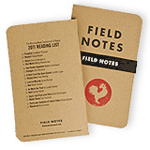by Aimee Bender
Doubleday
Buy at Powell’s »March 21, 2011
Jonathan Franzen
Emma Donoghue
Judged by
Based on reputation of these two bestsellers, this seemed like a semifinals-caliber matchup. (Both of these novels made the New York Times’s overall [not just fiction] 10-best list for 2010, for instance.)
Not surprisingly, they’re both very compelling. And reading them together made for curious and satisfying juxtapositions. If only I were still in college, I could write a killer paper titled “What ‘Stuck’ Is: Perspectives on Love and Normalcy in Freedom and Room.” Or maybe “Freedom and Room: What if They Traded Titles?”
Freedom, Jonathan Franzen’s follow-up to The Corrections (which, if it matters, I didn’t read) is an epic of American familial and social dysfunction and redemption. It follows various members of several generations of a middle-class family through decades of highs and (mostly) lows. In the America Franzen delivers, people left to their own devices and desires hurt people they love, and birds, and the environment, and themselves. The eponymous freedom, you see, is a blessing and a curse.
 Buy anything from Field Notes from now until the end of the ToB and receive a special “reading list” memo book free, while they last. Use coupon code ROOSTER.
Buy anything from Field Notes from now until the end of the ToB and receive a special “reading list” memo book free, while they last. Use coupon code ROOSTER.Ditto the eponymous room. In Emma Donoghue’s novel, a sexually abused mother and her five-year-old son live as captives in an improvised backyard prison. It’s the only home the boy has ever known. (Spoiler alert! But not really!!) When they escape, they discover (or in the mother’s case, rediscover) that “normal” society is full of challenges and danger and—perhaps worst of all—expectations.
Heavy stuff. Which is why my choice was actually fairly easy.
Did I mention that Room is narrated by the five-year-old, Jack?… Yes, it is. The whole entire thing. And let me start by saying that this literary device excites very much the people who love this book—and those include most critics and most people who bother to express themselves online. Most people say that this was a bold and startling and heartbreaking choice for Donoghue to make. They mean that in a good way.
It drove me nuts, however. For a few short chapters the point of view was interesting; then for another chapter it was poignant; and then for a few more pages it was cute. But then I wanted out. The baby talk started to grate on me, even as the story continued to humble and intrigue. Every page started to feel, to me, like one of those TV commercials for a charity, where a kid is made to say lines composed by adults who are trying to make you cry. I felt manipulated and … confined! (The irony!)
The trick works best when the boy is in direct dialogue with his mother. This is because the mother is the key to the story. She is the one from whom we want to hear. Maybe that would have been more predictable, but it also would have been more readable. Yes, a five-year-old seeing real life for the first time has a lot to absorb, and Donoghue clearly worked hard to inhabit Jack’s character and deliver this sense of worry and wonder to the reader. But her loyalty to his viewpoint makes for tedium and even shallowness. At moments we want desperately to hear from the mature, complicated mother—who lived outside and then inside and now outside again—we are instead trapped inside Jack, who’s too young to understand, too busy with over-literal misunderstandings of idioms and with confusion over everyday objects and activities. Talk about confinement.
Freedom, on the other hand, delivers an abundance of mature points of view. A Mississippi River of adult consciousness. Yes, Franzen’s plot is considerably more architectural, less gripping. And yes, in certain weak stretches, Freedom reads something like a Penthouse magazine tucked into a copy of the Economist. But on the whole, the writing is deep and rich and steady. The themes are familiar yet surprisingly well-woven. The characters and their interactions are finely observed, high-resolution, and intricately textured. By the time I was two-thirds of the way through, references to moments and people from earlier in the book brought back what felt like actual memories. Freedom is a very, very long page-turner, written by a grownup. It creates a world, in other words, as rich and complex as Room’s is small.
I choose Freedom.
Matt Dellinger is the author of Interstate 69: The Unfinished History of the Last Great American Highway. Known connections to this year’s contenders: “I recorded a podcast with Jonathan Franzen for the New Yorker (the only time I spoke with him), and I met Shteyngart once socially, also through the New Yorker (and also the only time I spoke with him).”